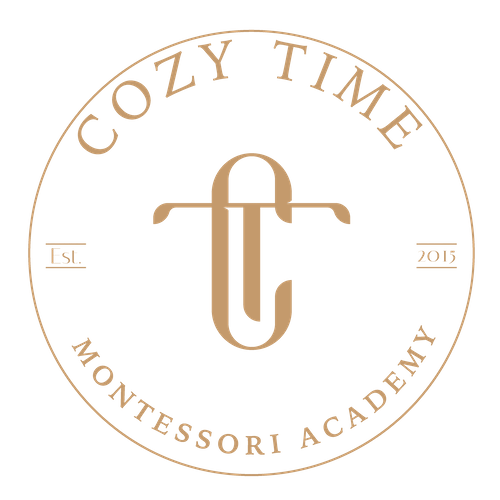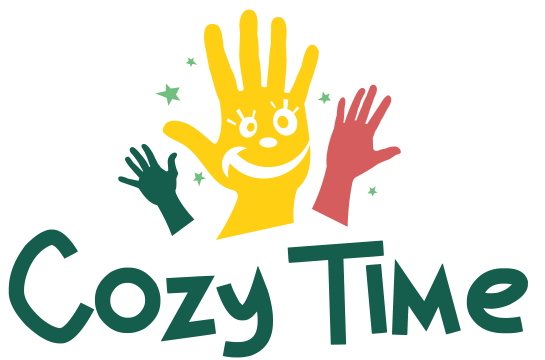My First Encounter with Montessori
As a seasoned education writer and a parent, I’ll never forget my first encounter with a Montessori daycare classroom. It was unlike any other traditional daycare environment I had ever seen. Walking into the Cozytime Child Care in Toronto, I was immediately struck by the calm, organized, and engaging atmosphere. The children, of various ages, were deeply engrossed in their activities, interacting with materials I’d never seen in a conventional classroom. It was this experience that sparked my interest in Montessori education, a journey that has brought me to share my insights with you today.
Unraveling the Montessori Philosophy
The Montessori philosophy, developed by Dr. Maria Montessori in the early 1900s, is one that views the child as one who is naturally eager for knowledge and capable of initiating learning in a supportive, thoughtfully prepared learning environment. It respects the individuality of each child and encourages their natural drive for discovery, innovation, and learning.
Unlike traditional education where children are often passive recipients of information, Montessori education places a great emphasis on hands-on, experiential learning. It encourages self-directed activity, allowing children to learn at their own pace, which fosters a love for learning, independence, and self-confidence.
Essential Elements of a Montessori Daycare Classroom
A Montessori daycare classroom, like the one at Cozytime Child Care, has unique elements that set it apart from conventional set-ups. Here’s what you can expect to see: Children are encouraged to explore and learn at their own pace in a nurturing environment. The emphasis on hands-on, experiential learning embodies the Montessori approach to early education, fostering independence and critical thinking skills. Natural materials and thoughtfully designed learning spaces further support this child-centered philosophy. In a Montessori classroom, children are encouraged to explore their environment at their own pace, fostering independence and a love for learning. The materials are designed to be self-correcting, allowing preschoolers to learn from their mistakes. This hands-on approach is central to Montessori education for preschoolers, emphasizing development through meaningful activities and peer interaction. Children engage in self-directed activities, fostering independence and a love for learning. Each area in the classroom is designed to enhance specific skills, and parents can request montessori daycare curriculum details to better understand how their child’s individual needs are met. The emphasis on hands-on learning and mixed-age groups creates a vibrant community where collaboration and social skills flourish.
Mixed-Age Groups
Montessori classrooms are structured around the idea of mixed-age groups. This arrangement facilitates peer learning, where younger children learn from the older ones, and the older kids reinforce their learning by teaching concepts they’ve already mastered.
Sensory-Based Learning
Montessori education highly values sensory-based learning. The classrooms are equipped with materials that engage the children’s senses and help them explore concepts through touch, sight, smell, taste, and sound.
Specific Montessori Materials
Every Montessori classroom is equipped with specific Montessori materials. These materials are designed to be self-correcting, meaning that the child can recognize and correct their mistakes without adult intervention, promoting independence and problem-solving skills.
Organized Learning Environment
The Montessori classroom is meticulously organized, with learning materials displayed on open shelves within easy reach of the children. Each object has a designated place, promoting respect for the environment and personal responsibility among the children.
Understanding and evaluating a Montessori daycare classroom requires a shift in mindset, as its principles are different from traditional educational models. But seeing the benefits it brings to children—independence, love for learning, and respect for others—makes it worth considering for your child’s early education. If you’re in Toronto, you can see this in action at Cozytime Child Care. To learn more, feel free to reach out at (416) 602 3811.
Role of the Teacher in a Montessori Classroom
Picture this: a classroom where teachers are not standing at the front, dictating information, but rather moving amongst the children, guiding them on their individual journeys of discovery. This is the essence of a Montessori classroom, and the role of the teacher is pivotal to the Montessori philosophy.
Guiding Rather Than Instructing
In traditional educational settings, the teacher is the keeper of knowledge, pouring information into students who are expected to passively absorb it. In contrast, a Montessori teacher acts as a guide, facilitating the child’s exploration and understanding of the world. They introduce materials and concepts, stepping back to allow the child to learn through direct, hands-on experience. This approach, employed successfully at Cozytime daycare in Toronto, fosters a sense of independence and self-confidence in children.
Handling Discipline in a Montessori Setting
The Montessori environment is defined by respect – for oneself, for others, and for the environment. Discipline is not about punishment but about guiding children towards appropriate behaviour. Missteps are viewed as opportunities for learning and growth. In a Montessori setting like Cozytime, teachers help children develop problem-solving skills, self-control, and respect for others, laying a solid foundation for their future.
Benefits of a Montessori Daycare
Years of observing children in Montessori environments have highlighted a vast array of benefits that this approach to education provides. Here are just a few:
Developing Self-Discipline and Independence
Montessori education is designed to help children develop self-discipline and independence from a young age. Children are encouraged to choose their activities and work at their own pace, learning to manage their time and resources. This approach fosters a sense of responsibility and self-reliance that is invaluable in later life.
Fostering a Love for Learning
By allowing children to explore topics that interest them, Montessori education ignites a passion for learning that can last a lifetime. Children become active participants in their education, driven by curiosity and enthusiasm rather than external rewards or pressure.
Enhancing Cognitive and Social Development
Montessori materials are designed to engage children’s senses and stimulate their cognitive development. At the same time, the focus on community and cooperative learning helps children develop important social skills such as empathy, respect, and effective communication.
Checklist for Evaluating a Montessori Daycare
When visiting a Montessori daycare, such as Cozytime in Toronto, there are several key factors to consider:
Accreditation
Ensure the daycare is accredited by a recognized Montessori association. This guarantees that the institution adheres to the core principles of Montessori education.
Teacher Credentials
Montessori teachers undergo specific training in the Montessori method and philosophy. Check that the teachers are certified and have experience with this educational approach.
Classroom Organization and Materials
A Montessori classroom should be well-organized, with a range of Montessori-specific materials readily available. This facilitates independent learning and exploration.
Observing a Class in Session
Observing a class allows you to see the Montessori method in action. Look at how the teachers interact with the children and how the children engage with the materials and each other.
In conclusion, Montessori education offers a unique approach to learning that fosters independence, curiosity, and respect for others. To learn more about the Montessori method and how it is implemented at Cozytime daycare in Toronto, call (416) 602 3811.

